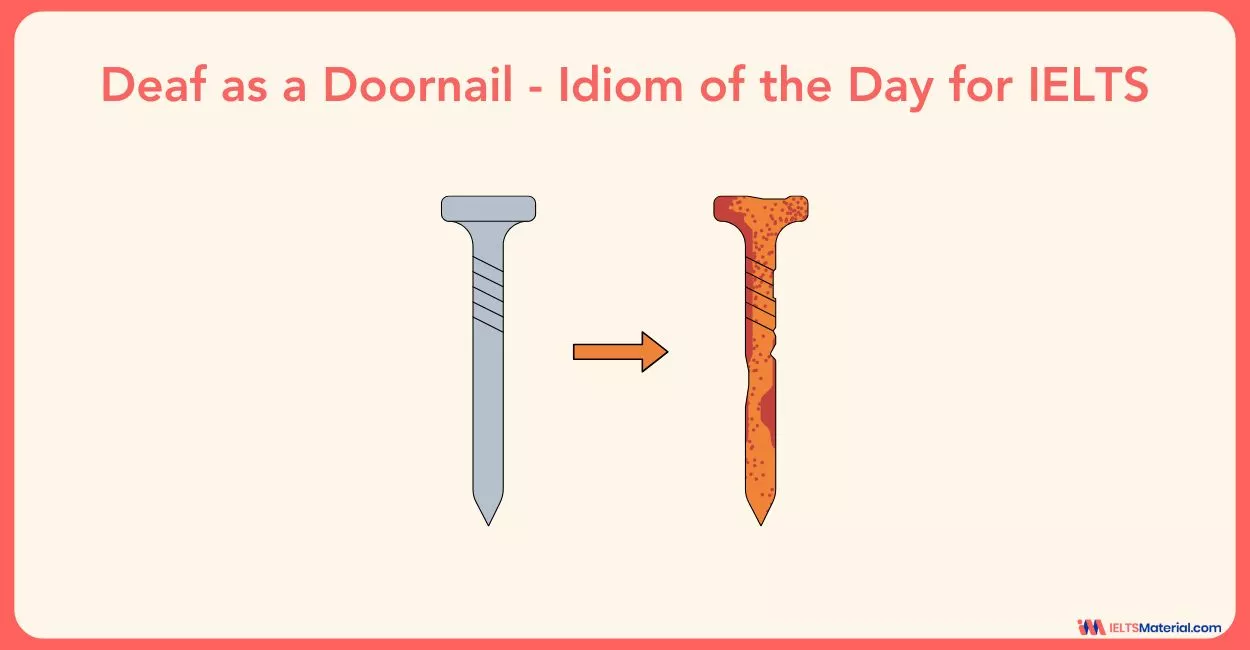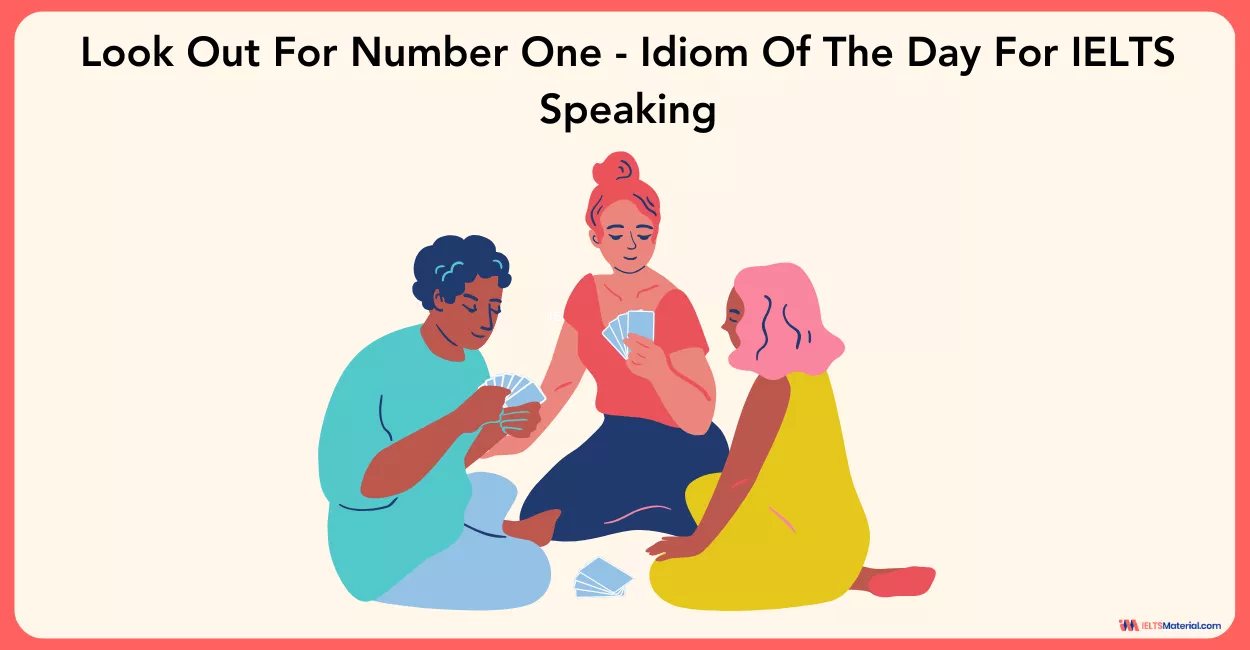Look Out For Number One – Idiom of the Day for IELTS Speaking
Discover how to use the idiom Look Out For Number One in IELTS Speaking. Includes definition, examples, exercises, and cue card practice to help you sound fluent and confident while improving your vocabulary for a higher IELTS score.
Table of Contents
- Meaning of Look Out For Number One
- Origin of the Idiom Look Out For Number One
- Usage of Look Out For Number One in Context
- When to Use the Idiom Look Out For Number One
- Idiom Scenarios
- Sample Answer Using the Idiom Look Out For Number One
- IELTS Vocabulary Tip for Look Out For Number One
- Exercise: Look Out For Number One

Limited-Time Offer : Access a FREE 10-Day IELTS Study Plan!
When preparing for the IELTS Speaking test, using idiomatic expressions naturally and correctly can boost your score, especially in the Lexical Resource criterion. Today’s idiom, “Look out for number one,” is useful when describing self-centered behavior, prioritizing personal needs, or putting oneself first.
Meaning of Look Out For Number One
Definition: To look out for number one means to put yourself first, focusing on your own needs, goals, or interests above others. It often suggests being self-centered, though it can sometimes be used in a positive sense when self-care is important.
Origin of the Idiom Look Out For Number One
The idiom comes from the idea that “number one” refers to yourself. Over time, it became a way to describe people who prioritize their own interests before considering others, whether in daily life, work, or relationships.
Want to master more high-band IELTS vocabulary for the IELTS exam? Book a Free Demo Class today.
Usage of Look Out For Number One in Context
Here are some example sentences showing how the idiom is used in the IELTS Speaking:
- “The only way to succeed in such a competitive business is to look out for number one.”
- “It doesn’t always make you selfish if you look out for number one and prioritize your mental health.”
- “Jack always looks out for number one, which is why his colleagues don’t enjoy working with him.”
Pro tip: Use this idiom when describing selfish behavior, personal priorities, or situations where someone puts themselves before others.
When to Use the Idiom Look Out For Number One
You can use this idiom in IELTS Speaking Part 1, Part 2, or IELTS Speaking Part 3 when:
- Talking about selfish or self-centered people.
- Describing situations where someone put their needs first.
- Discussing whether prioritizing oneself is positive or negative.
Idiom Scenarios
Scenario 1
Sam: Why don’t you like working with Jack?
Asha: Because he always looks out for number one, and never supports the team.
Scenario 2
Mia: Do you think it’s bad to prioritize yourself?
Arjun: Not always. Sometimes you have to look out for number one to protect your health.
Sample Answer Using the Idiom Look Out For Number One
IELTS Speaking Part 2 – Describe a person you don’t like to talk with.
Sample Answer:
“One person I don’t really enjoy talking with is a colleague from my office. I usually meet him during team meetings, but I try to keep the conversations short. He’s the kind of person who always thinks about himself first. For example, he takes credit for group work, interrupts others, and avoids helping anyone. You could say he always looks out for number one. That attitude makes him unpleasant to interact with, and I prefer not to spend time with him. It’s frustrating because teamwork requires cooperation, not self-centeredness.”
Grab the newly launched Vocabulary for IELTS (Essential words for popular topics in IELTS) to level up your preparation.
IELTS Vocabulary Tip for Look Out For Number One
Using idioms like look out for number one makes your IELTS Speaking answers sound fluent, natural, and flexible. It is especially effective when describing people’s personalities, workplace challenges, or discussions about selfishness vs. self-care.
Exercise: Look Out For Number One
Multiple-Choice Question
Q1: “Fred took the last piece of cake. He always __________________.”
a) the name of the game
b) are two of a kind
c) look out for number one
d) tough it out
Correct Answer: c) look out for number one
Fill-in-the-Blank
Q2: “She never helps her classmates because she only __________________.”
a) looks out for number one
b) raises the bar
c) plays it safe
d) hits the nail on the head
Correct Answer: a) looks out for number one
Want to master more high-band IELTS vocabulary for the IELTS exam? Book a Free Demo Class today.
To sum up, look out for number one is a useful idiom for IELTS Speaking when describing selfishness, self-prioritization, or personal boundaries. Whether you use it to criticize someone’s attitude or to highlight the importance of self-care, this idiom helps you sound natural and expressive. If you’re aiming for a higher band score, make sure to practice idioms in context and check out the IELTS Exam Preparation Tips for Band Score of 8+ to further enhance your vocabulary and overall test performance.
Also Check:
Explore IELTS Resources

Start Preparing for IELTS: Get Your 10-Day Study Plan Today!
Recent Articles

Kasturika Samanta

Prity Mallick

Nehasri Ravishenbagam





Post your Comments